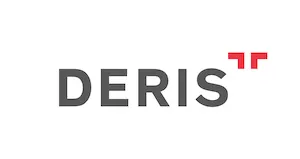Turkey has adopted some regulations in order to combat with the counterfeit on online platforms as well as to determine the responsibility of the internet service providers ("ISPs") .
Legal Framework and Practice:
The Internet Law:
The Law no. 5651 on Regulating Broadcasting in the Internet and Fighting against Crimes Committed through Internet Broadcasting ("Internet Law") regulates the responsibilities of content providers and ISPs regarding prevention of the broadcast of illegal content violating the personal rights of real persons and legal entities (under Article 9 amended on February 06, 2014). Besides, the Law provides detailed provisions concerning the listed offences (or catalog crimes) i.e. inducement to commit suicide, sexual abuse of child, facilitation of the use of drugs, provision of substances harmful to the health, obscenity, prostitution, facilitation of gambling and the crimes against Ataturk, all of which are circumstances in which delay in taking action would entail risk to the detriment of personality rights and privacy.
Given that the wording of the Article 9 of the Internet Law also includes "personal rights the legal entities" and considering that unlawful contents which infringe the industrial property rights of legal persons would damage their property rights alongside their names and reputations, trademark rights can be into this category by being interpreted as personal rights of the legal entity.
According to the Internet Law, in case the right holders do not reach to content providers, service providers are obliged to respond to the request of the real person or legal entity claiming that their personal rights have been violated at latest within 24 hours and, accordingly to remove the unlawful content from publication of the Internet Law. In other words, "notify and remove" principle is accepted under the Turkish Law.
As per the same article, the Criminal Judges will decide on the request of the injured party 24 hours following the request at the latest. The decision on blocking access is sent by the Information and Communication Technologies Authority ("Institution") to the access provider who is obliged to implement the decision within a maximum period of four hours. Failure to implement the blockage decision by the access provider can result in punishment of the access provider with judicial fine.
However, in practice the criminal courts are reluctant to deem the trademark rights as the personal rights of legal entities within the scope of this provision, as there is no clear reference to the trademark counterfeiting in the legislation.
Within the scope of IP Code:
Industrial Property Code No.6769 ("IP Code") which entered into force as of January 2017 does not include the specific provisions in relation to the take down requests in case of trademark infringement. However under the Article 7/3 (d) of the IP Code particularly regulates the use of trademark in the internet. In case any third party who is not entitled to use the sign or has not any legitimate relation with the sign, use of the identical or similar sign on the internet as domain names, metatag, keywords or the like so as to cause a commercial effect, the real right holder of the sign may request the prohibition of such uses. Nevertheless, there is still no clear regulation regarding prohibition of publishing contents through the internet which constitutes trademark infringement.
Therefore, in practice trademark owners forced to pursue civil routes by requesting preliminary injunction ("PI") decision for blocking access to infringing contents which is relatively indirect and long process.
Within the scope of the Copyright Act:
The Article 4 of the Intellectual and Artistic Works no. 5846 ("Copyright Act") regulates the take down process of online copyright infringements such as reproduction, making the work available to the public, alteration, distribution and communication to the public by devices enabling the transmission of signs, sound and/or images without the authorization/consent of the copyright holder.
In case of an online infringement, copyright holders may contact the content provider for the removal of the infringing content within 3 (three) days. If the request is not responded by the content provider within 3 (three) days, the copyright holder may submit a request to the competent Public Prosecutor for granting an order against the ISP in order to block the internet access of the content provider.
Comments
To put in a nutshell, it can be stated that the current system is inconsistent due to the different interpretations on whether counterfeiting should be accepted within the scope of Article 9 of Internet Law or not.
In order to avoid inconsistent decisions with respect to the take downs in relation to the trademark infringement, the scope of the Article 9 of the Internet Law should be clarified specifically in relation to the trademark counterfeiting or a new article should be added to the IP Code just as the Copyright Act which includes a specific provision regulating the take down process of online copyright infringements.
The content of this article is intended to provide a general guide to the subject matter. Specialist advice should be sought about your specific circumstances.


